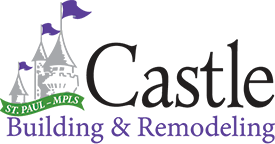-
Community Involvement
A contractors’ business has to exist someplace. A contractor can’t operate in a void or with complete disregard for the community it serves. That same contractor is dependent on a healthy, thriving community, and it is significant if a contractor plays a vibrant and supportive role in the community. What role does your prospective contractor play in your community? What organizations does he support? Of what groups is he an active member? Does he attend neighborhood meetings? Does he go to church in your community? Are his children in local schools and is he active in their education? Does he sponsor a local sports team? Are the employees involved in community groups and organizations? Many times, the importance of participating and giving back to the community is overlooked by disreputable contractors and their employees, but appreciated by professional contractors.
Community involvement often shows a respect and understanding of the community at large. They are familiar with community issues and local problems. They are also familiar with the age and type of architecture in the area. Involvement shows commitment to the community and its people. You can often find this information in community newspapers and at community meetings.
Is your prospective contractor active on the larger city-wide level? Has he played a role in local elections, served on the school board, held office or volunteered for community functions? Many neighborhoods and communities have home tours or home improvement shows. These are usually set up to support some segment of your community. Has he participated in these? Is he active in the governance of the community? Ask him these questions and afford him the opportunity to share how he participates.
Ratings
Unacceptable: The contractor does not participate in any community activities. He has no understanding of the history or culture of the community. He doesn’t have any connections to civic-minded groups in your community.
Good: The contractor takes an active role in the community. You meet him at numerous community gatherings. He understands the value of community and has an overall understanding of the community values and priorities.
Better: In addition to the above, the contractor has taken the time to serve in different community organizations. He knows other leaders and is comfortable in leadership roles. He understands this service makes him a valuable asset in the community.
Best: In addition to the above, the contractor is a key player in the community. He has served for years on the Board of Directors of local organizations. He knows their mission and values their contributions to the community. He has given his time and money to community functions. He can be counted on as a staunch supporter of community endeavors. A lot of his employees live in the local community and he does business with many of the local businesses.
Check out the other 24 factors that every smart house-owner use when they consider their remodeling contractor here.

